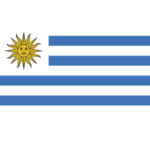

Uruguay does not regulate corruption in the private sector. When we talk about corruption in our country, we associate it with public officials. Today, the same behaviors committed by public officials if committed by individuals, fall under other criminal figures different from corruption crimes. Private bribery is not a crime under Uruguayan law.
However, Uruguay ratified the United Nations Convention Against Corruption (UNCAC) in 2006 (Law No. 18,056), which deals with private corruption, urging States to adopt measures to prevent corruption and improve accounting standards and auditing in the private sector. However, to date corruption in the private sector has not been regulated.
Draft bill in charge of the JUTEP
Law No. 19,797, in force since March 1, 2020, commissioned the Board of Transparency and Public Ethics (JUTEP) to prepare a bill that analyzes and provides for measures to prevent corruption in the private sector.
Technical advice from UNODC and participation of the business sector in the preparation of a policy on private corruption
The United Nations Office against Drugs and Corruption (UNODC) is technically advising the JUTEP, in the elaboration of the aforementioned bill.
Within the framework of this advice, an event organized by the Global Compact, UNODC and Ferrere Abogados was held on December 7, with the purpose of having the Uruguayan business sector work on the co-design of this anti-corruption policy for the private sector. .
The event was attended by experts from the aforementioned offices, as well as the highest authorities of the JUTEP, Chamber of Commerce and Services of Uruguay, Union of Exporters, National Association of Micro and Small Companies (ANMYPE), National Secretariat for the fight Against Money Laundering and the Financing of Terrorism (SENACLAFT) and representatives of both national and multinational companies.
In the event, the current regulations were reviewed, opinions were exchanged and feedback was provided to the design of the anti-corruption public policy on which the JUTEP is working.
Conclusions of the event on private anti-corruption policy
The event concluded that a policy on corruption in the private sector should include the following elements:
- Apply to: (i) sectors that are contractually linked to the State (pharmaceutical, energy, construction, logistics), (ii) companies that exceed a certain level of income or assets, and (iii) companies that can exercise a dominant position in the local market.
- Provide a system of administrative responsibility – not criminal – of legal persons. Criminal responsibility would continue to fall solely on individuals.
- Impose a gradual regime of sanctions (warning, observation, fine, temporary or permanent suspension, temporary or permanent ban on contracting with the State, loss of eventual benefits granted by the State, cancellation of legal status with the possibility of redeeming the company) .
- Public regime of defaulters.
- Criminalize new crimes in the private sector such as local and transnational bribery, influence peddling (including regulation of lobbying or pressure groups), collusion, embezzlement or embezzlement of assets, money laundering (including private corruption as a predicate offense), and behaviors that violate the transparency of accounting records.
- The JUTEP could be the body in charge of monitoring compliance with a possible regulation, in relation to the administrative responsibility of legal persons, while the specialized Prosecutor’s Offices would be for crimes that are established related to private corruption.
- System of credits and reduction of sanctions in favor of companies that have effective corruption prevention programs, and the eventual granting of certain benefits when competing in contracting systems with the State.
Effective anti-corruption compliance programs in the private sector
Although Uruguay does not have specific regulations on private corruption, to date several of the local companies and, above all, multinationals with activity in Uruguay, have their own anti-corruption programs, including both corruption in the public sector and in the private sector. private.
These programs are of varied scope, made according to the values and principles of each company, and sometimes respond to internal policies of foreign parent companies. In general these programs include:
- Risk analysis and preparation of risk matrices.
- Codes of ethics or conduct.
- Integrity policies and procedures.
- Governance rules that indicate the obligations and responsibilities of the different participants in the company (shareholders, board of directors, audit committee, compliance officer, heads and managers, etc.).
- Regular and differentiated training.
- Support from senior management and management.
- Internal reporting channels, open to company members and also to third parties, therefore their adequate dissemination is important.
- Whistleblower protection policy.
- Complaint investigation protocol.
- Due diligence of third parties, business partners, including suppliers, distributors, service providers.
- Due diligence in mergers and acquisitions processes.
- Monitoring, auditing and continuous evaluation of the effectiveness of the anti-corruption compliance program.
- Appointment of an internal manager with a focus on “corruption”.
Having effective integrity programs benefits companies, not only because of the proper management of their risks (operations, reputational, etc.), but also because they generate an important business opportunity, either because they do not have these tools , are not taken into account as suppliers; or because by having them, they become more attractive companies for shareholders and investors.
For more information contact:
Carla Arellano | Counselor Ferrere | carellano@ferrere.com





